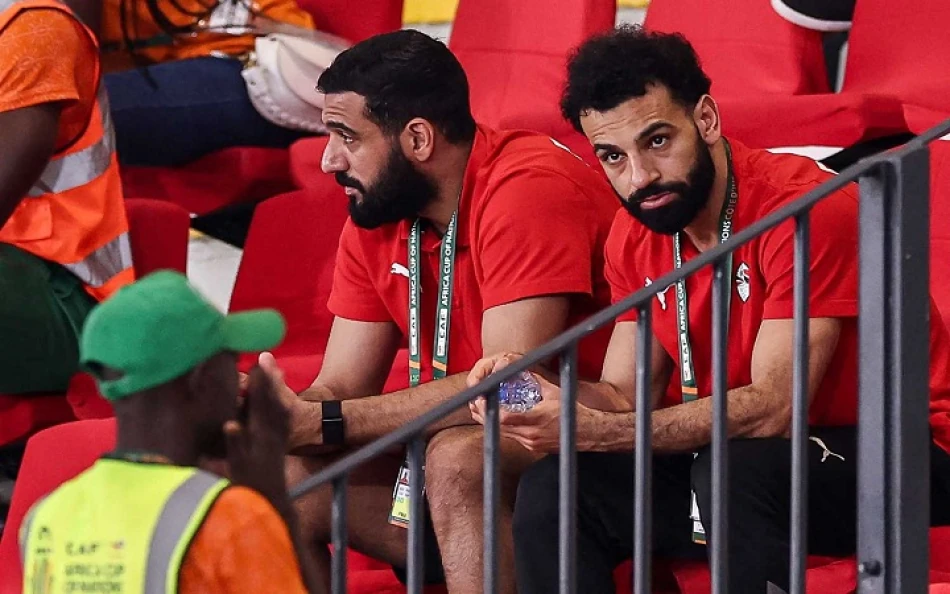
Egypt National Team Faces Ethiopia in Crucial 2026 World Cup Qualifier
Nigeria's World Cup Dreams Hang by a Thread as African Qualifiers Resume
After a six-month hiatus, Africa's World Cup qualifying campaign resumes with dramatic implications for the continent's football powerhouses. While Egypt appears poised to secure qualification under Mohamed Salah's leadership, Nigeria faces an unprecedented crisis—sitting fourth in their group with just one win from six matches, threatening to miss a second consecutive World Cup.
Egypt Eyes Early Qualification Behind Salah's Leadership
The Pharaohs enter the resumption of qualifiers in commanding position, leading Group 1 with a comfortable five-point cushion over second-place Burkina Faso. Egypt's upcoming fixtures—hosting Ethiopia in Cairo on Friday before traveling to face Burkina Faso in Ouagadougou—could mathematically seal their spot at the 2026 tournament in the United States, Canada, and Mexico.
Egypt's strong position reflects the stabilizing influence of Liverpool star Mohamed Salah, whose presence has transformed the national team's fortunes since their disappointing 2018 World Cup campaign. The team's current trajectory mirrors their successful 2017 qualifying run when they ended a 28-year World Cup drought.
Nigeria's Shocking Decline Threatens Continental Balance
Perhaps no story captures African football's unpredictability better than Nigeria's stunning collapse in Group 3. The Super Eagles, three-time World Cup participants and traditionally one of Africa's strongest sides, languish in fourth place—a position that seemed unthinkable when qualifiers began.
South Africa currently tops the group with a four-point advantage over both Rwanda and Benin, while Nigeria trails significantly with their solitary victory. The psychological impact extends beyond statistics, as star striker Victor Osimhen acknowledged the mounting pressure.
"We are eager to qualify this time, especially after missing the 2022 finals," Osimhen stated. "Nigerians tell us we're a talented generation, but that praise will evaporate if we can't qualify for the World Cup."
European Stars Don't Guarantee Success
Osimhen's candid assessment highlights a broader challenge facing African national teams: translating individual European club success into collective international achievement. Nigeria's squad features numerous players from top European leagues, yet tactical cohesion and qualifying consistency have proven elusive.
"Our lineup is packed with European league stars, but that alone isn't enough for success. We must earn qualification," emphasized the Napoli striker, whose club performances have made him one of Europe's most coveted forwards.
Expanded Format Creates New Opportunities and Pressures
The 2026 World Cup's expansion to 48 teams theoretically improves African nations' chances, with the continent likely to receive additional slots beyond the current five automatic qualifiers. However, the qualifying format maintains intense pressure: only nine group winners advance directly, while the four best runners-up enter a playoff system.
This structure means traditional powerhouses like Nigeria cannot rely on reputation or past achievements. The meritocratic approach has already produced surprises, with smaller nations like Rwanda and Benin competing seriously for qualification spots previously reserved for established teams.
Infrastructure and Investment Shape Competitive Landscape
Burkina Faso's return to home matches following stadium renovations at the August 4 Stadium, now FIFA-approved, illustrates how infrastructure investment directly impacts competitive balance. Teams with proper facilities gain crucial home advantages that can determine qualifying outcomes.
The six-month break also allowed nations to reassess tactical approaches and player integration, potentially reshuffling the competitive hierarchy as matches resume. For countries like Nigeria, this pause represents either a reset opportunity or additional time for pressure to mount.
Continental Implications Beyond Individual Nations
The qualifying campaign's final phase will determine not just which teams reach 2026, but Africa's broader representation on football's biggest stage. Nigeria's potential absence would remove one of the continent's most recognizable footballing brands, while Egypt's likely qualification ensures North African representation alongside their traditional continental influence.
As African football continues developing domestic leagues and youth systems, World Cup qualification serves as the ultimate measuring stick for progress. The resuming qualifiers will test whether recent investments in coaching education and player development translate into results when stakes are highest.
Most Viewed News

 Sara Khaled
Sara Khaled






